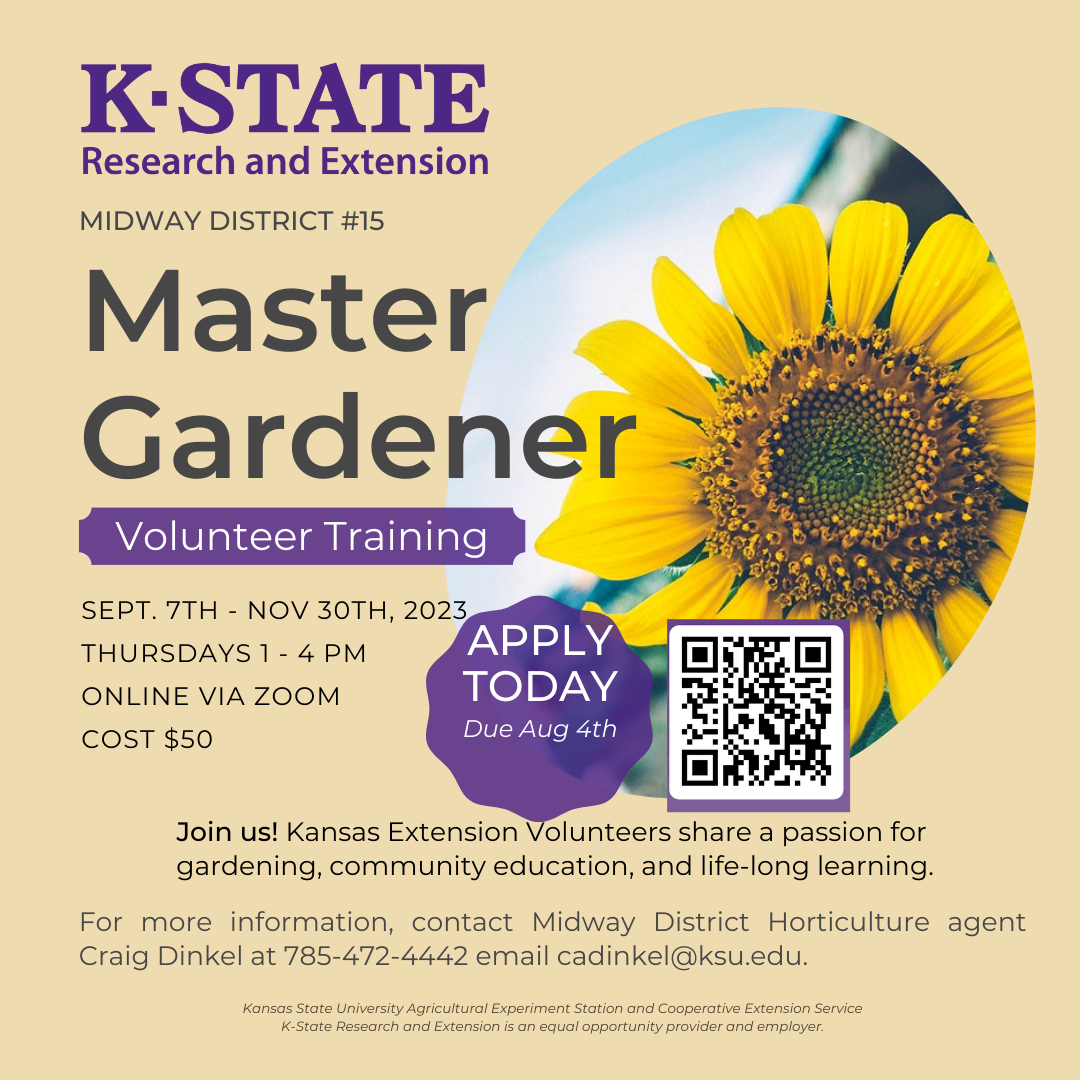Lawn & Garden
Welcome to Midway District Lawn & Garden / Horticulture! Growing plants in our "transition zone" climate is always a challenge. With the right plants and proper care, gardeners can have great success despite the ever-changing weather conditions.
Composting
Composting is nature's process of recycling decomposed organic materials into a rich soil known as compost. Anything that was once living will decompose. Basically, backyard composting is an acceleration of the same process nature uses. By composting your organic waste you are returning nutrients back into the soil in order for the cycle of life to continue. Finished compost looks like soil–dark brown, crumbly and smells like a forest floor.
Types of composting:
- Backyard composting — If you have a yard and a balance of browns (fallen leaves or straw) and greens (grass clippings and food scraps), you have all you need to make compost.
- Worm composting (vermicomposting) — If you have a tiny yard or live in an apartment or have an abundance of food scraps, this type of composting is for you.
- Grasscycling If you have grass clippings and don't want to use them in a compost pile you can leave them on the lawn to decompose.
10 good reasons why you should compost:
- Yard and food waste make up 30% of the waste stream. Composting your kitchen and yard trimmings helps divert that waste from the landfill, waterways and water treatment facilities.
- You will significantly reduce pest problems–and your use of pesticides.
- Healthy plants from healthy soil look better, produce better and have a much greater ability to fight off pests and diseases.
- Adding organic materials to the soil improves moisture retention.
- Adding decomposed organic material to the soil feeds beneficial organisms.
- Compost amends both sandy and clay soils.
- Compost provides a balanced, slow-release source of nutrients that helps the soil hold nutrients long enough for plants to use them.
- Composting saves money–you avoid the cost of buying soil conditioners, bagged manure, etc.
- Feeding your plants well will improve your own diet. Plants grown in depleted soils have reduced nutrient content.
- Home composting is a valuable tool in educating children about nature and the cycle of life.
Publications:
Garden & Fruit Trees
Flowers
- Flowers & Ornamental Grasses
- Growing Flowers in Pots
- Growing Roses
- Prairie Star Annual Flower
- Prairie Bloom Perennial Flowers
- Roses
Garden
Lawn
Master Gardener Program
Master Gardener Training Schedule
The Extension Master Gardener Program is an educational volunteer training program sponsored by K-State Research and Extension. Through this program, individuals are trained and certified in horticulture and related areas. These individuals, in turn, volunteer their expertise and services to help others through horticulture projects that benefit the community.
Once trained, Extension Master Gardeners provide research-based information to the public on many topics including water conservation, yard waste management, regional plant adaptability, and the environment.
The Master Gardeners work with their local Extension staff to develop educational programs that meet the horticultural needs of their local citizens. Projects may include school programs, demonstration gardens, speaker's bureau and answering questions on a horticulture hotline.
What does the Master Gardener Training provide?
The Northwest Extension Master Gardener training program provides over 40 hours of classroom and hands-on instruction in horticulture-related areas. Classes in the training program include:
- Basic Botany
- Fruit Gardening
- Herbaceous Ornamentals
- Indoor Plants/Flowers
- Insect Diagnosis & Management
- Interacting with the Public
- Landscape Design
- Pesticides
- Plant Disease Diagnosis & Management
- Soils/Water/Fertilizers/Compost
- Tree & Shrub Care
- Turf Management
- Vegetable Gardening
- Woody Plants
What does the Master Gardener Program require?
The first year, after receiving the basic training, Extension Master Gardeners are required to return 40 hours of service time on projects that benefit the community and events sponsored by their County Extension Office. Active participation is a commitment each individual is asked to make to the program.
After the first year, Extension Master Gardeners are asked to volunteer 20 hours and continue their education with 8 hours of advanced training.
Why become an Extension Master Gardener?
Extension Master Gardeners become friends with many interesting and talented individuals. They share ideas with one another. Extension Master Gardeners never stop learning but continue to grow in their knowledge of garden related issues.
Being an Extension Master Gardener is a fun, interesting, and rewarding experience!
Who can apply?
Anyone age 18 or over who has an interest in horticulture can apply. If you want to improve your skills and knowledge and like to work with people, the Extension Master Gardener program may be for you!
Trees
Publications:



